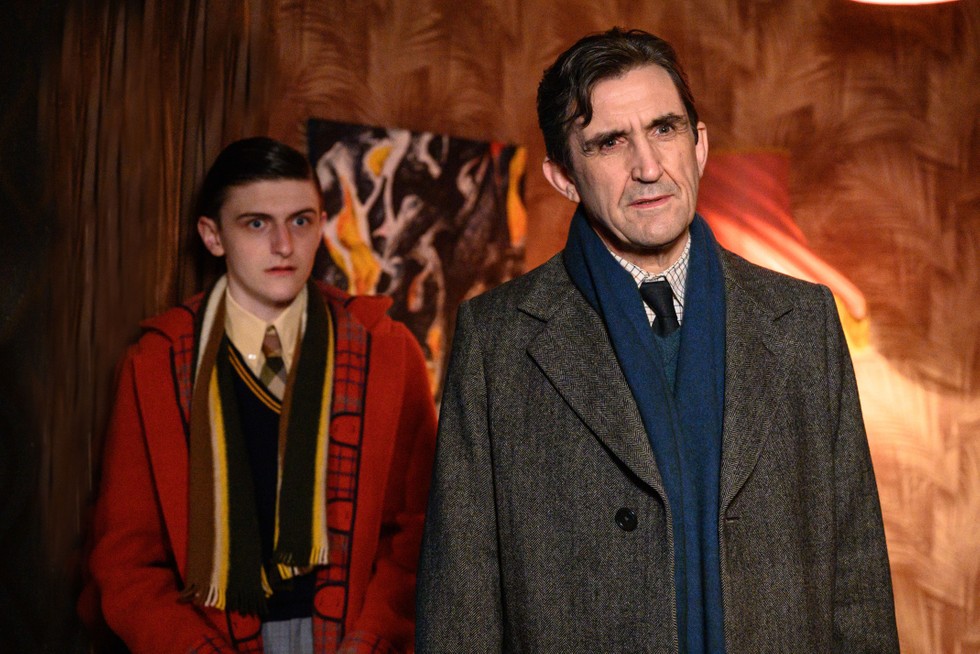Life is different, Stephen McGann has found, when you’re married to an in-demand TV writer.
Books keep arriving, in hopes that Heidi Thomas will adapt them. They form “the growing mountain of night-time reading we stack by our bedside,” McGann wrote in “Call the Midwife: A Labour of Love” (2022, Neal Street Productions).
Thomas reads fast and discards quickly. But a dozen years ago, she announced: “You know, I think I might be able to do something with this.”
The result is “Call the Midwife” (shown here with McGann and Max Mcmillan, who plays his son),now at a key point: Previous episodes are at www.pbs.org and the 11th-season finale is at 8 p.m. Sunday (May 8) on PBS: Last week, a crash left three people on a train, near death — Sister Julienne and a former patient … and Dr. Turner, played by McGann.
Yes, this can be an odd marriage. At a Television Critics Association session, Thomas said it doesn’t feel strange to see McGann have someone else as his TV wife. “I am accustomed to what he looks like as a husband,” she said. “If he murdered his on-screen wife, I’d be very concerned.”
And now viewers will see if she has (sort of) killed his on-screen character. This has been a dark season.
“Call the Midwife” is set in a nursing convent in a hard-scrabble London area. Nurses and midwives – some of them in the Anglican order, some not – work with the one doctor. Troubles abound, even during a normal year. “I cry all the time,” Megan Cusack, who plays the youngest nurse, told the TCA. Added Thomas: “We all cry …. We love to cry.”
And that’s in a normal year. This season – which began with two babies’ bodies found hidden — has been overrun with despair. In this finale, one patient (already a teen mom) faces tragedy with her second birth; another is unaware that her husband (a train engineer) has died in the crash.
All of that is just one side of the “Midwife” mood. Maria Bruno Ruiz, PBS’ scheduling executive, talks of the show having “so much joy and beauty”; McGann writes of “our brave, fierce, gentle, tough little show”; his book is filled with lush photographs and cheerful memories from actors and others.
Still, the tragedy has always loomed – economically, politically (the show has finally reached 1967, when abortion and homosexuality were decriminalized in England) and medically.
The first season was set in 1957, a time when, McGann said, England was “very much in the austerity aftermath of the Second World War, yet this new, nationalized health service was up and running like crazy, because it was full of zeal. It had fantastic new weapons in antibiotics.” The medical world was transforming, he said, and Turner is “an absolute firebrand for this stuff.”
He’ll continue to be, if McGann’s wife lets Dr. Turner live. Viewers will soon see.
